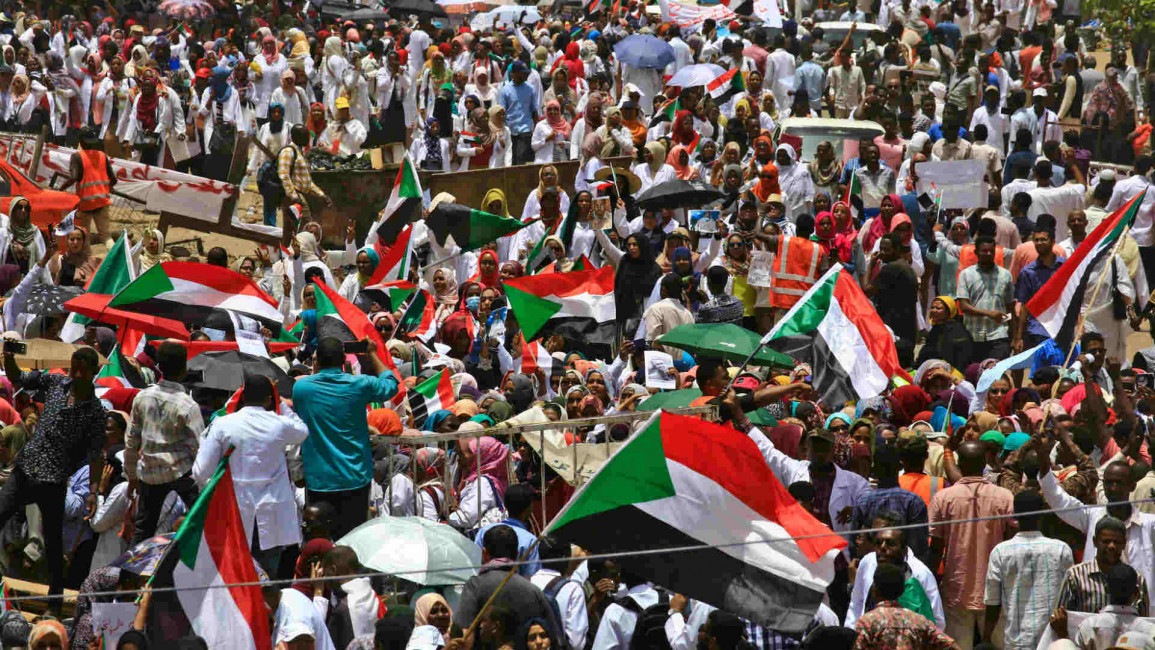Sudan's military arrests deposed President Omar al-Bashir's brothers
Sudan's military has detained two of overthrown leader Omar al-Bashir's brothers, a spokesman for the ruling military transitional council said on Wednesday.
"We have detained symbols of the toppled regime... and brothers of the ousted president, Abdullah and Abbas," Lieutenant General Shamseddine Kabbashi told reporters.
Bashir was overthrown and arrested by Sudan's military last week after months of mass popular protests against his 30-year rule.
The 75-year-old former dictator was moved to Kobar prison in the capital Khartoum on Wednesday, local sources claimed, after being held under house arrest, according to the military.
Bashir's uncle Al-Tayyib Mustafa denied those reports in an interview with The New Arab's Arabic service. Other sources in the family also claimed Bashir was still under house arrest on Wednesday.
The governing military junta has said that it will not extradite Bashir or any other Sudanese to the International Criminal Court (ICC), where the former leader is wanted for alleged war crimes, crimes against humanity and genocide committed during the Darfur conflict.
The council has said a future civilian government - set to take power in two years time - could decide upon his extradition to the ICC.
Both brothers, Abdallah Hassan al-Bashir and Al-Abbas Hassan al-Bashir, were arrested on "corruption charges", Kabbashi said.
The transitional military council has promised to rid Sudan of the corruption many say was pervasive during Bashir's rule.
General Abdel Fattah al-Burhan, leader of the military transitional council, announced on Wednesday that all government institutions would have to disclose their bank accounts both inside and outside of the country.



